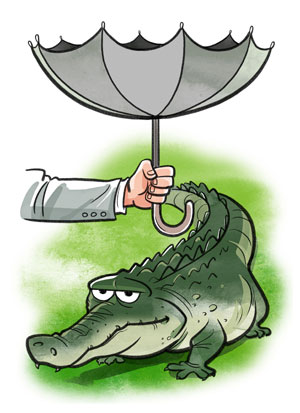Bad habits die hard as Anhui shows


In its notification of its findings about the Anhui provincial government on Saturday, the Central Ecological and Environmental Inspection Team points out that about 602 hectares of land in the Yangtze alligator protection zone in the province was illegally developed for commercial use, and the province's forestry administrative bureau, the department in charge of the protection zone, had tried to cover up its connivance in this. Beijing News comments:
The inspection team's notification indicates the provincial forestry administrative bureau officials sought to deceive their superiors. The protection zone reported the illegal land occupation to the forestry administrative bureau as early as March 2010. But the bureau colluded with the Jingxian county government, helping it to re-draw the boundaries of the protection zone and designate the 602 hectares of land as a development site.
Over the eight years that followed, the central authorities repeatedly urged the provincial forestry administrative bureau to rehabilitate the land. But the bureau turned a deaf ear to these calls. The audacity of the bureau is rare among the cases exposed by the central inspection team.
The question that needs answering is what power and interests can turn the guardian of the protection zone into an accomplice of its destroyer? In fact, the power and interests still exert their influence now, as the inspection team's notification is only a means to press the provincial government to initiate an overdue investigation as soon as possible. If the government continues to delay, as it has since 2010 when the land issue was exposed, the inspection team's notification will simply be another ineffective alert. Both the county and the provincial forestry administrative bureau have connived with the developers to turn the land into a commercial zone.
This case, along with others, has laid bare the resistance local governments put up to the central authority's call to safeguard the red line of ecological and environmental preservation. If the case continues to be unresolved this time, it will embolden more local government leaders to ignore the inspection team's work, which means the old habit of putting economic interests before ecological conservation will persist in the new era.


































